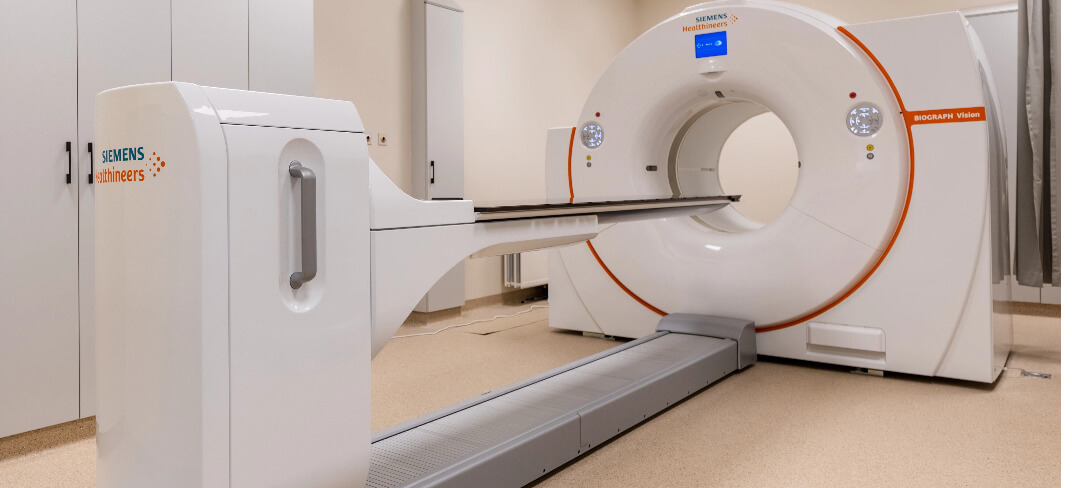
Prostate Cancer is the Most Common Form of Cancer in Men in Croatia
Experts at Movember Warn: Early Diagnosis is the Key to Successful Treatment
12 November 2025
Zabok, Croatia — As part of Movember, the international movement that marks November as the month dedicated to men's health, experts once again draw attention to the importance of timely examinations and open conversation about health problems that affect men, especially prostate cancer, testicular cancer and mental health. Prostate cancer is the fourth most commonly diagnosed cancer in men globally (an estimated 1,467,854 new cases in 2022), and in Croatia, according to the Croatian Institute of Public Health, 2,609 new cases were diagnosed in 2022 and in 2024, 862 men died from this disease, making prostate cancer the third leading cause of death in men.
Croatia is one of the countries that has recognized the importance of early detection of prostate cancer and introduced a Special Program for Screening and Early Detection of Prostate Cancer. In a special program, PSA level, digitorectal examination, family history, PSA density and nomogram are used to determine which patients should undergo multiparametric magnetic resonance imaging (mpMRI). After the mpMR result is known, the risk for prostate cancer is reclassified and a decision on prostate biopsy is made. In this way, it is expected to reduce the degree of overdiagnosis and treatment.
In the coming years, as the number of patients examined grows, the program should contribute to early detection and increase the survival rate of patients with prostate cancer.
“One of the indispensable tools in modern oncology – PET/CT scans allow us to more accurately assess the disease and determine the stage of the disease before applying curative treatment. PET/CT is primarily used to assess the extent of the disease and detect metastases, for example, after confirmation of cancer by biopsy, and before the application of surgical treatment or radiation. Furthermore, PET/CT is important in the application of radiosurgical treatment, planning of the so-called salvage radiotherapy, selection of patients for radionuclide therapy and in new clinical studies. Our goal is to provide patients in Croatia with access to top-notch diagnostics like the world's leading cancer treatment centers,” said Dr. Marko Bebek, specialist in oncology and radiotherapy, medical director of radiation oncology at the UPMC Hillman Cancer Center on the campus of the Zabok General Hospital and the Croatian Veterans Hospital.
UPMC Hillman Cancer Center Croatia supports the operation of a special program for screening and early detection of prostate cancer by increasing the availability of oncological treatment and PET/CT diagnostics.
“In Croatia, FDG PET is widely available, while PSMA PET is currently limited. The supply of PSMA radiopharmaceuticals is still insufficient, but it is also a logistically demanding process, especially for coastal Croatia, and therefore the number of available appointments is limited. A few days ago, we received the first delivery of 18F PSMA in UPMC Croatia and successfully conducted the first scan of a patient who underwent primary treatment, which represents an important step towards better availability of modern diagnostic procedures for prostate cancer in Croatia. This is a concrete progress in improving early detection and equal access to modern diagnostics”, said Dr. Sunčica Andreja Rogan, a specialist in nuclear medicine at UPMC Hillman Cancer Center.
UPMC Hillman Cancer Center is internationally recognized for its expertise and commitment to bringing advanced oncology care to local communities. UPMC Hillman Cancer Center in Zabok was opened in March this year and is the sixth UPMC Hillman location in Europe and one of almost 80 UPMC Hillman centers in the world. Before the opening of this center on the campus of the Zabok General Hospital and the Croatian Veterans' Hospital, Krapina-Zagorje County was a rare county in Croatia where oncology patients had nowhere to be treated. The UPMC Center offers a range of cancer treatment services, including radiation oncology, internal medicine oncology and PET-CT diagnostics.